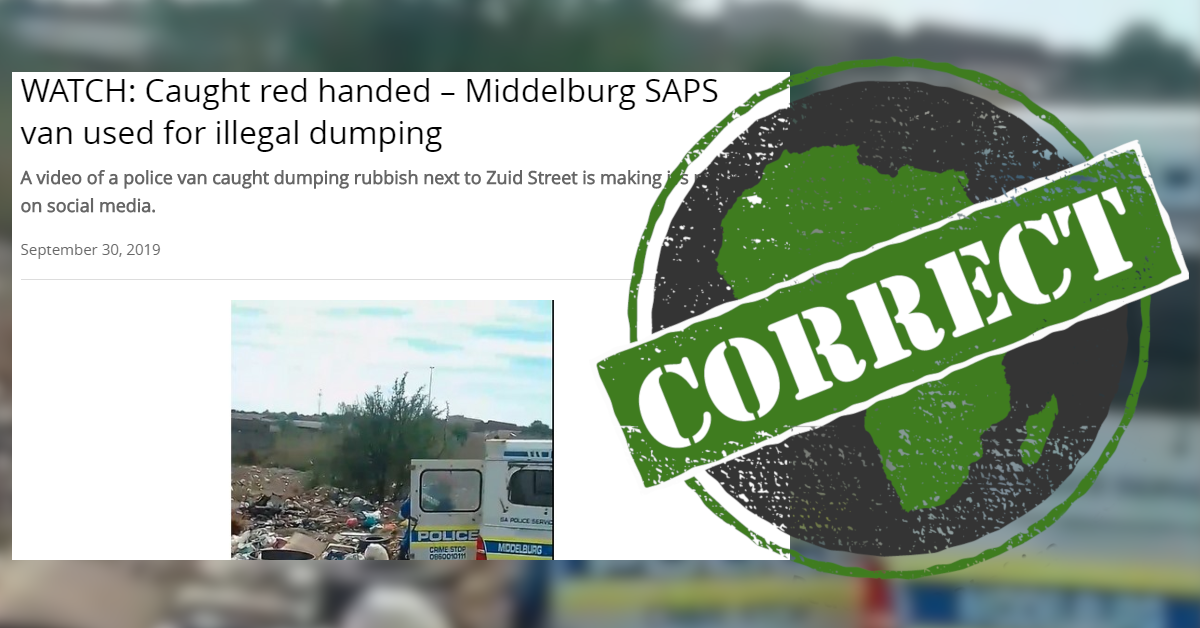Images of a South African Police Service (SAPS) van, apparently dumping refuse, have been circulating on Facebook in South Africa since September 2019.
The video shows a man in civilian clothes off-loading paper waste from the back of a marked SAPS van. There are no uniformed officers in the video.
Posts on social media claim this is illegal dumping – disposing of garbage in undesignated areas, an issue causing concern across South Africa.
The incident, which is said to have taken place in Middelburg in the north-eastern province of Mpumalanga, has caused a backlash against the police on social media.
But what are the facts?

According to SAPS spokesperson Brigadier Leonard Hlathi, the police van was being used by a private company, hired to panel-beat the van.
He said: “The state garage outsourced the vehicle to the private company as is normal practice. It is then that it was used by people from the private company to dump litter as seen in the video.”
SAPS confirmed that no police officers were involved.
According to Brig Hlathi, SAPS opened a case docket against the private garage for “using a vehicle without the owner’s consent”. The van was subsequently fixed and returned to SAPS. – Lloyd Hazvineyi
The video shows a man in civilian clothes off-loading paper waste from the back of a marked SAPS van. There are no uniformed officers in the video.
Posts on social media claim this is illegal dumping – disposing of garbage in undesignated areas, an issue causing concern across South Africa.
The incident, which is said to have taken place in Middelburg in the north-eastern province of Mpumalanga, has caused a backlash against the police on social media.
But what are the facts?

Private garage used SAPS van for dumping, without consent
According to SAPS spokesperson Brigadier Leonard Hlathi, the police van was being used by a private company, hired to panel-beat the van.
He said: “The state garage outsourced the vehicle to the private company as is normal practice. It is then that it was used by people from the private company to dump litter as seen in the video.”
SAPS confirmed that no police officers were involved.
According to Brig Hlathi, SAPS opened a case docket against the private garage for “using a vehicle without the owner’s consent”. The van was subsequently fixed and returned to SAPS. – Lloyd Hazvineyi
Republish our content for free
For publishers: what to do if your post is rated false
A fact-checker has rated your Facebook or Instagram post as “false”, “altered”, “partly false” or “missing context”. This could have serious consequences. What do you do?
Click on our guide for the steps you should follow.
Publishers guideAfrica Check teams up with Facebook
Africa Check is a partner in Meta's third-party fact-checking programme to help stop the spread of false information on social media.
The content we rate as “false” will be downgraded on Facebook and Instagram. This means fewer people will see it.
You can also help identify false information on Facebook. This guide explains how.


Add new comment